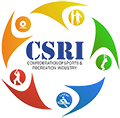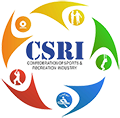Indian kids start specialising in a sport too early: IIS CEO Rushdee Warley
Avishek Roy, New Delhi
They take up a specific sport very young as they don’t have access to a multi-sport environment. Improving system will thus help gain physical literacy early

Rushdee Warley(JSW sports media)
Rushdee Warley has nurtured young Indian sporting talent for seven years as CEO of JSW Group’s Inspire Institute of Sport. Its high performance centre in Vidyanagar, Karnataka is sought after by Indian athletes, be it for cutting-edge training or injury rehabilitation.
Olympic javelin champion Neeraj Chopra, after his elbow surgery in 2019, underwent his rehabilitation and recovery at the IIS centre, bouncing back to achieve glory in the Tokyo Olympics and other international arena.
Warley, who has worked as high-performance trainer in many countries, feels a professional system that backs elite athletes is an important element for sporting success.
“Having that backend to support the athletes is so critical. That includes administration, technical staff, sports science staff, the government and the systems and processes that you have in place. So, they don’t have to worry about anything else,” he says.
Having seen the talent pool in India, Warley is sure a professional system will create more champions.
“What I would like to see within India is that you have professional structures that are backing athletes; you’ve got a federation that has a full-time CEO, that has coaches on long-term contracts, there’s a clear pipeline of talent and there are more competitive opportunities at club level.”
The IIS currently has 260 trainees in boxing, judo, wrestling, track and field and football besides swimming which was recently introduced. Long jumper Jeswin Aldrin, who set the national record (8.42m) last year, is an IIS product. Judoka Linthoi Chanambam, 57kg cadet world champion, is also from this centre.
The facility opened in 2018 with trainees in the 14 –15 age group. South African Warley joined IIS in the run-up to the launch after having worked in New Zealand and South Africa in high performance sport.
Warley feels one big drawback in India is that kids are introduced to different sports at a young age and they specialise in the sport they take up.
“Here you have children going into the sport at a very young age because they don’t have access to a multi-sport environment. Specialising in a sport at a very young age which scientifically you will see that the likelihood of success going that route isn’t very high, especially in sports like athletics, swimming, boxing and weightlifting.
The athletes who go to IIS, though young, have already chosen their disciplines. “When we get kids here, often they are already specialised in their sport. Yes, there would be some exceptional athletes at a very young age like Linthoi, who came in when she was 11-12 years old.”
Warley says they have had good success with their developmental programmes. A new hostel that can accommodate 120 trainees is coming up.
Sports science is one area where IIS is laying more emphasis. Warley says they are working towards having more data and research on Indian athletes, which will be a big help in developing training programmes.
“For us, the philosophy is around the coaching programme. The coach needs to be able to work with the experts and understand how those experts, including data experts, can guide him along.”
“Our mission is to create a world-class data training environment and that happens to include rehab also. There is everything on-site at IIS –physiotherapy team, doctors, nutritionists. The systems we are looking to put in place are about creating an environment where the athletes can perform.”
Hindustan Times

